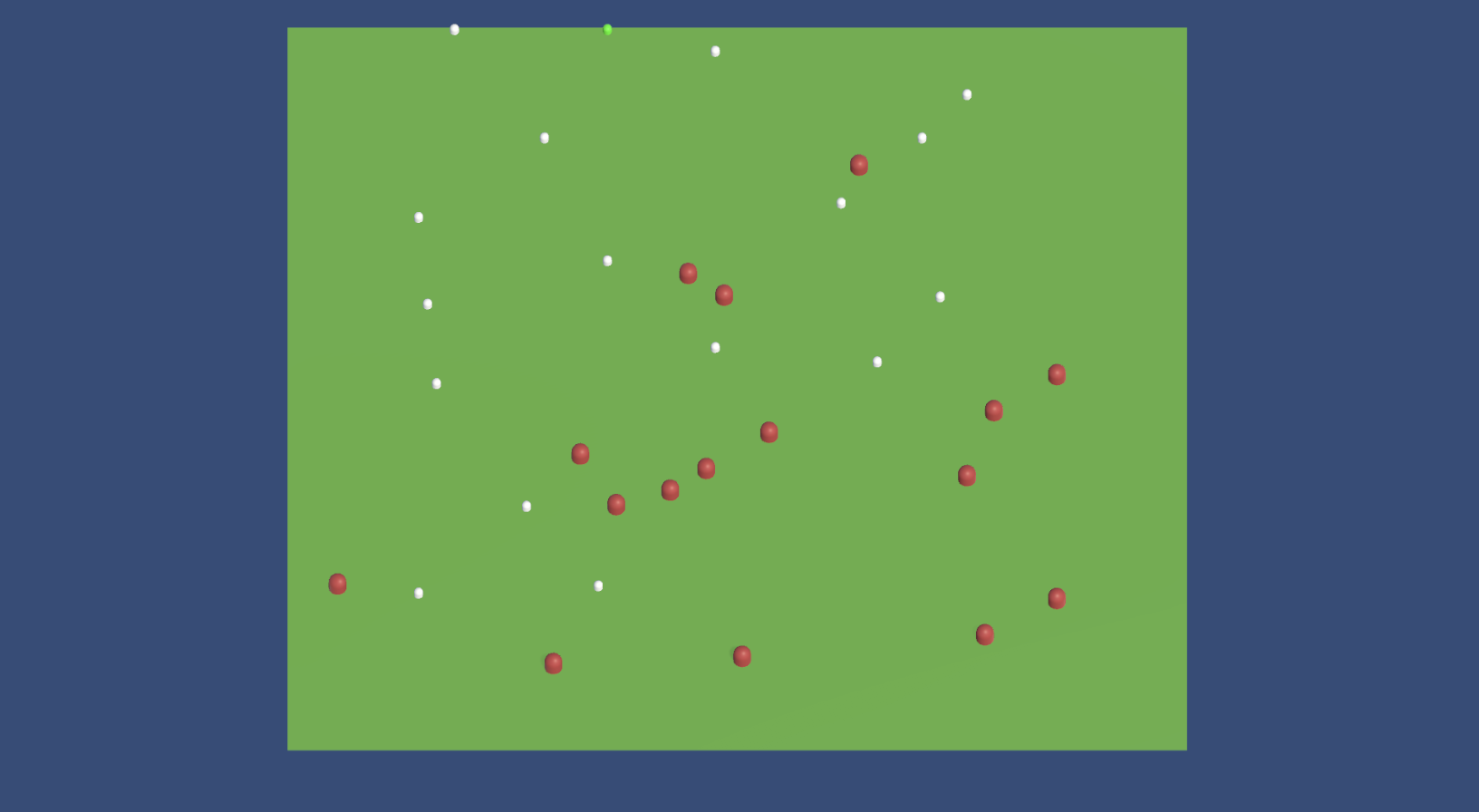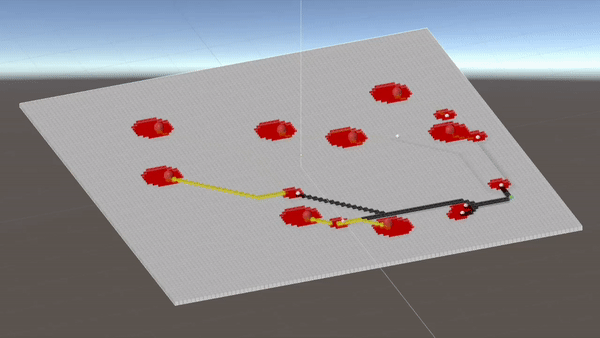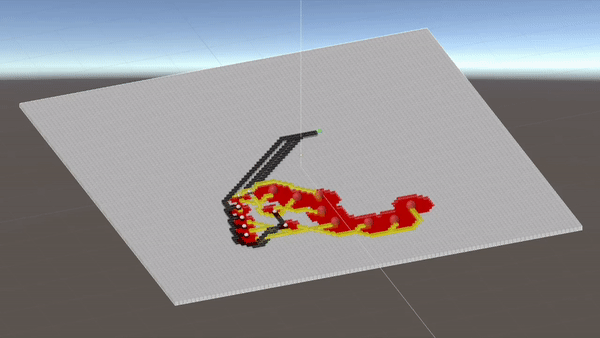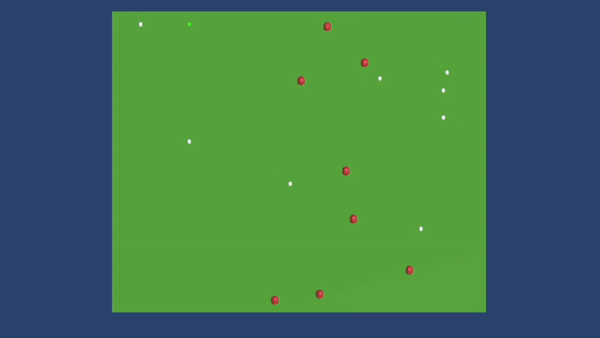Game dev + AI
This past year I've worked on two AI projects.
Playing Adversarial Chairs with A-Star Pathfinding
This first project involved A-Star pathfinding with dynamic obstacles.

Two groups of pathfinders were created - humans (white) and chairs (red). Humans were tasked with reaching a green target, while chairs tried to stop them.
Each chair was assigned a human to follow. Originally, they were assigned to the closest, but this led to a clustering effect.

By assigning each chair to a human, more variation was possible:

After adding an isometric camera, this is the final scene:

The full demo can be found here on itch.io.
Hierarchical Task Network (HTN) Planning
This form of game AI was introduced by Transformers: Fall of Cybertron in 2012. For this project, a minotaur guards a treasure while four adventurers try to steal it.
Using a HTN planning algorithm, the adventurers are able to assign themselves tasks based on their surroundings. They are also able to backtrack and re-plan if they fail their current task. This is the pseudocode:
Plan: <>
State: current world state
tasks.push(rootTask)
while(tasks != empty) {
t = tasks.pop()
if(t.composite) {
m = t.findMethod(state)
if(m != null) {
saveState(t, plan, m)
tasks.push(m.subtasks)
} else {
restoreSavedState() <- backtrack
}
} else {
if(t.precondition(state)) {
state = t.apply(state)
plan.append(t)
} else {
restoreSavedState() <- backtrack
}
}
}
The minotaur logic is: attack whoever is holding the treasure, otherwise attack the closest adventurer.
In HTN, there is a Plan() method that processes the world state and reduces composite tasks to primitive ones. In this project, these composite tasks are TakeDamage, StealTreasure and AttackMinotaur.
The first adventurer who spawns will be assigned StealTreasure. All others distract the minotaur (AttackMinotaur), which means (1) throwing rocks or (2) swinging their sword.
The minotaur has a radius attack. If damaged, the adventurer will fail their current task and begin a TakeDamage composite task, which stalls them so the minotaur can seek their next target. Once TakeDamage is completed, they backtrack to their original task.
The BeAdventurer tree:
BeAdventurer
|
|-- Method 0 (Navigate to Treasure)
| |
| |-- NavToTarget
| | |
| | |-- NavToTargetLocation (Either Treasure or Minotaur)
| | |
| | |-- NavToMinotaurLOS (Far-Rangers seek Minotaur for Attack)
| |
| |-- PickUpTreasure
| |
| |-- MoveToSpawn
|
|-- Method 1 (Navigate to Minotaur)
| |
| |-- NavToTarget
| | |
| | |-- NavToTargetLocation (Either Treasure or Minotaur)
| | |
| | |-- NavToMinotaurLOS (Far-Rangers seek Minotaur for Attack)
| |
| |-- DoAttack
| | |
| | |-- DoCloseRangeAttack (If Close-Combat Adventurer)
| | |
| | |-- DoFarRangeAttack (If Far-Range Adventurer)
| |
| |-- Recover
|
|-- Method 2 (Take Damage)
|
|-- TakeDamage
|
|-- Method 0
| |
| |-- TakeDamageToHealth
| | |
| | |-- Recover (Can take n > 1 hits)
| | |
| | |-- Despawn (Can take n = 0 hits)
|
|-- Method 1
|
|-- DropTreasure
|
|-- TakeDamageToHealth
|
|-- Recover (Can take n > 1 hits)
|
|-- Despawn (Can take n = 0 hits)
To test backtracking, a TakeDamageTest function was implemented, which made the adventurer fail their current task whenever they were clicked.

Take note:
- If an adventurer doing
StealTreasureis assignedTakeDamage, another adventurer will assume the composite task ofStealTreasure. - After recovering from the
TakeDamagetask, adventurers will continue their failed task (in this case, ‘StealTreasure’).

Below is a demo where the adventurers successfully obtain the treasure:

Another where they fail:

Here's the final scene:

You can play the game here on itch.io.